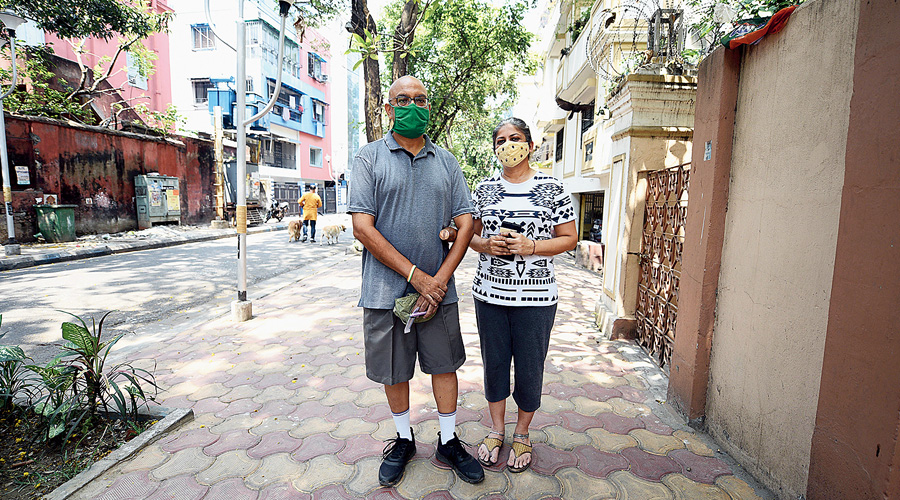
Calcuttans vote to ‘preserve the city’s inclusive culture’- despite the Covid-19 threat, to many of them this election was more than a battle for political power
A sizeable presence of senior citizens and women was seen in queues outside many polling booths on Monday

Outside a polling booth in Bhowanipore, financial consultant Alka Karnani said: “Diwali dinner at our home is incomplete without our Muslim friends. Similarly, we go to their places during Id celebrations.”
“We must preserve the inclusive culture of Calcutta against an onslaught of religious polarisation,” said Shiv Karnani, a resident of Nafar Kundu Road.
Shiv and his wife Alka voted at a booth in Bakulbagan, a stone’s throw from their home.
Shiv’s ancestors trace their roots to Rajasthan but moved to Bengal over 200 years ago. “When I go to Rajasthan now, I go there as a tourist. Calcutta is my home,” said the 57-year-old, who is in the medical equipment industry.
The couple have two sons, the elder one settled abroad. “We also want our children to get jobs here. So that they don’t have to leave home for jobs,” Alka said.
A sizeable presence of senior citizens and women was seen in queues outside many polling booths on Monday.
An old man, walking with a stick, came out of a booth on Ramesh Mitra Road in Bhowanipore around 11am.
The April sun was scorching and the man paused to rest for a few seconds after every few steps. On seeing a couple of TV cameras, he flashed his left index finger marked with the poll ink.
“Some of my family members and neighbours were sceptical about me stepping out to vote. But I was bent on voting. Voting gives me a reassurance that I am still not invalid,” said Sambhu Nath Dutta, 86, a resident of Puddapukur in Bhowanipore.
Asked what the main issue that influenced his voting was, Dutta replied: “I voted for a Bengal where everyone can live together peacefully, a Bengal without violence.”
The Election Commission had arranged for postal ballots at home for voters aged above 80. But Dutta said he was not aware of the provision.
At the polling station in Deshbandhu College for Women off Rashbehari Avenue, the queue of voters stretched around 100 metres around noon. Several voters stood under umbrellas.
At the Institute of Jute Technology on Ballygunge Circular Road, the polling booth was busy since early morning. The queue of women voters was much longer than that of men.
From Chetla to Lake Gardens, polling stations were busy for most of the day.
Till 5pm, the voter turnout percentage in Calcutta was around 60 per cent, according to the EC.
Sukriti Dutta, 20, a first-time voter, stepped out of a polling booth on Sarat Bose Road around 10.30am.
The BSc student, a resident of Manoharpukur, said women’s safety was one of the main issues for her. “I can return home safely after 10pm now. I voted to keep things that way,” she said.
The polling booth at South City International School was also busy.
Debdatta Mukherjee, 64, a Poddarnagar resident, had come to vote at the booth with wife Kabita, 60.
“The communal polarisation we are witnessing threatens to tear apart the ‘politically conscious’ badge that Bengalis love to flaunt. There are no jobs here, there is no industry. Social harmony is the only asset that we have in Bengal. We must protect it,” said Debdatta, a chemical engineer from Jadavpur University.
Ridhhisha Halder, all of seven months, made her way to a polling station in Bhowanipore on Monday morning, in her mother’s arms. “There is no one to look after her at home. We could not miss voting. So, here we are,” said her mother Urmila, a homemaker. Her husband Ritesh said the vote was important because it was a battle between locals and outsiders. “We are not perfect. But we are happy. We don’t need the ‘Sonar Bangla’ projected by leaders from Delhi. They will turn Bengal into a land of strife and unrest,” said Ritesh.
Md Tarique Ahmed, 28, a marketing professional, cast his vote at Lady Brabourne College in Park Circus. He said that Bengal would not fall to the politics of polarisation. “The BJP relies on a tried and tested formula — division of people along religious lines. The party has done the same in other states. But it will not work in Bengal,” he said.
Sreedita Dasgupta, a first-time voter, and mother Srabanti had come to cast their votes at South City International School. Sreedita, a BTech student at a private engineering college, said she wanted enough jobs in her home state. “Young people studying here should not have to leave the state in search of jobs. I want the new government to ensure that,” she said. Her mother said: “Manush e manush e hingsha jano bondho hoye (Violence among humans should stop).”

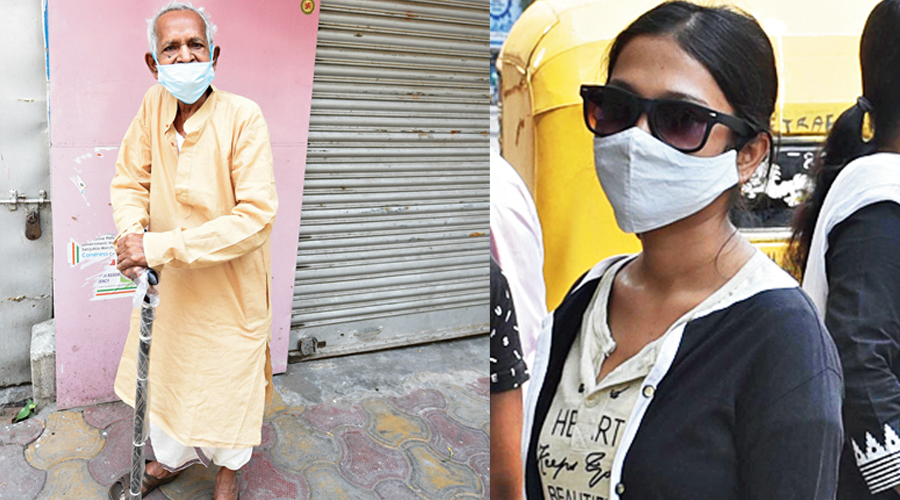
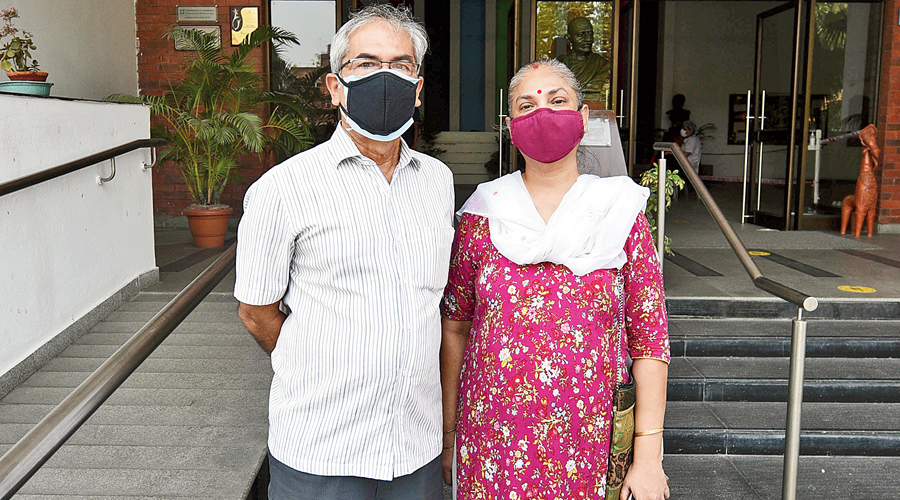
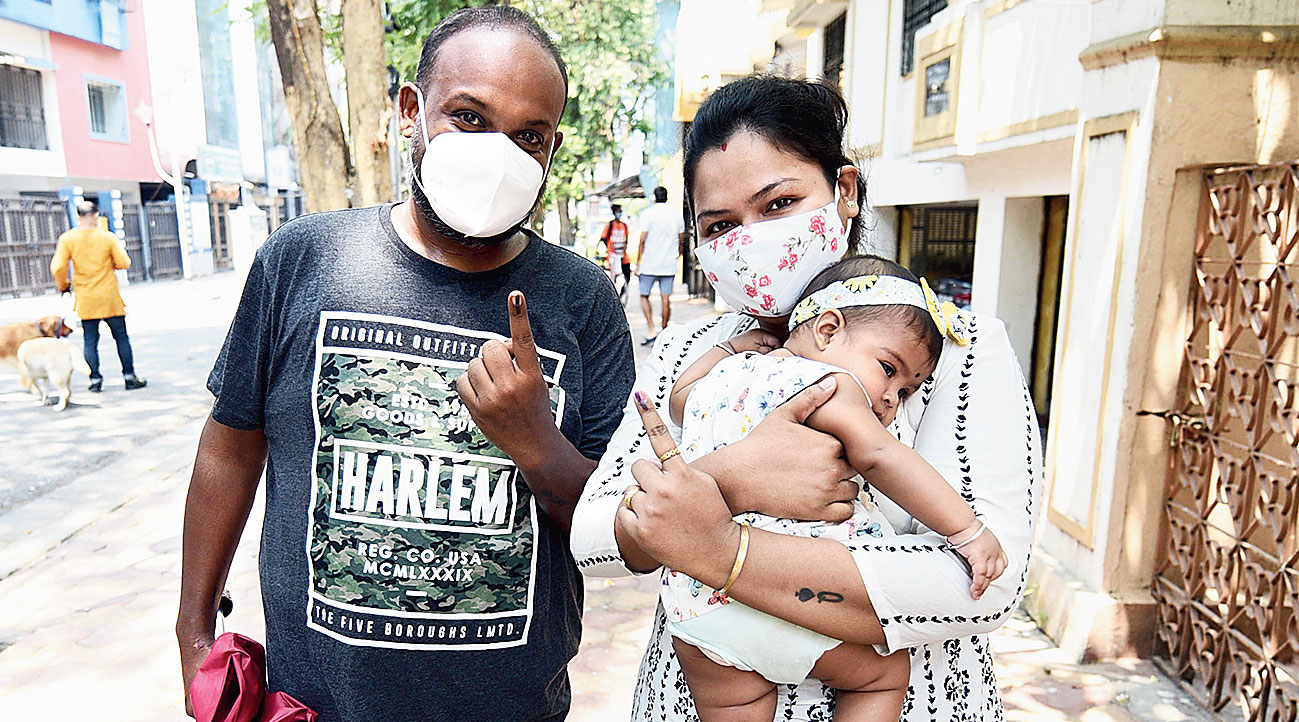
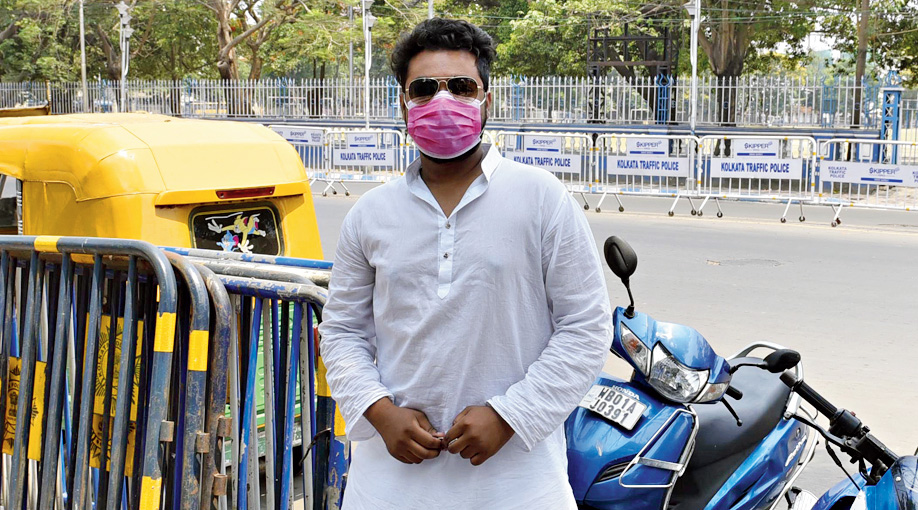
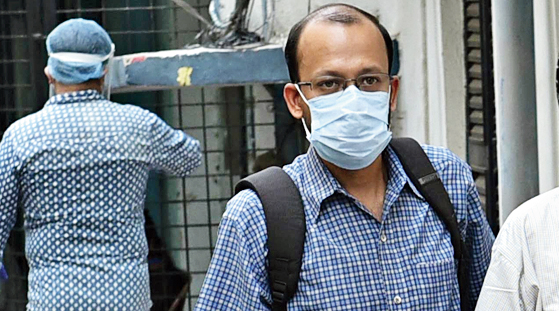
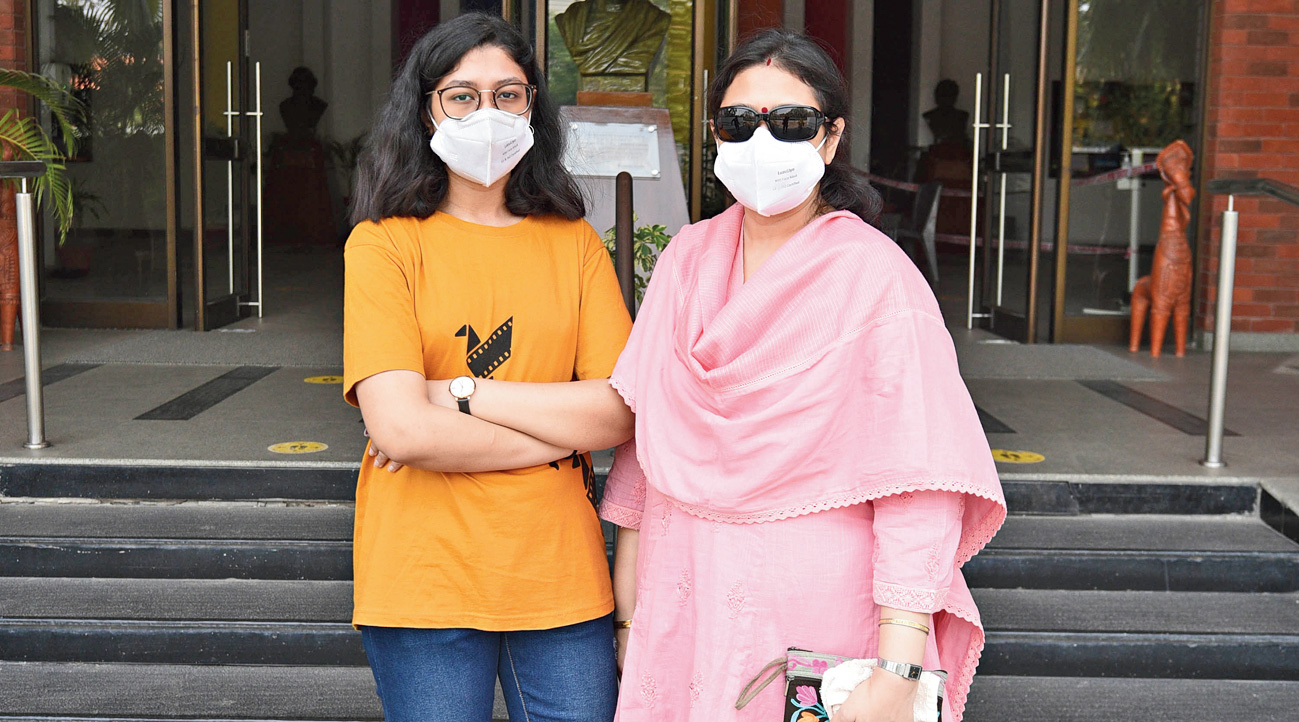

0 Response to " Calcuttans vote to ‘preserve the city’s inclusive culture’- despite the Covid-19 threat, to many of them this election was more than a battle for political power"
Post a Comment
Disclaimer Note:
The views expressed in the articles published here are solely those of the author and do not necessarily reflect the official policy, position, or perspective of Kalimpong News or KalimNews. Kalimpong News and KalimNews disclaim all liability for the published or posted articles, news, and information and assume no responsibility for the accuracy or validity of the content.
Kalimpong News is a non-profit online news platform managed by KalimNews and operated under the Kalimpong Press Club.
Comment Policy:
We encourage respectful and constructive discussions. Please ensure decency while commenting and register with your email ID to participate.
Note: only a member of this blog may post a comment.